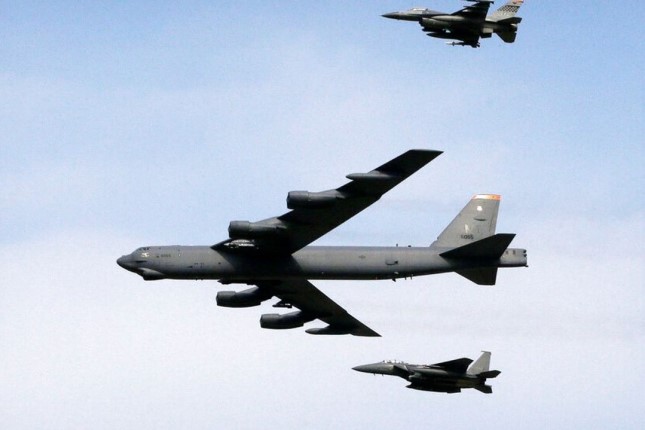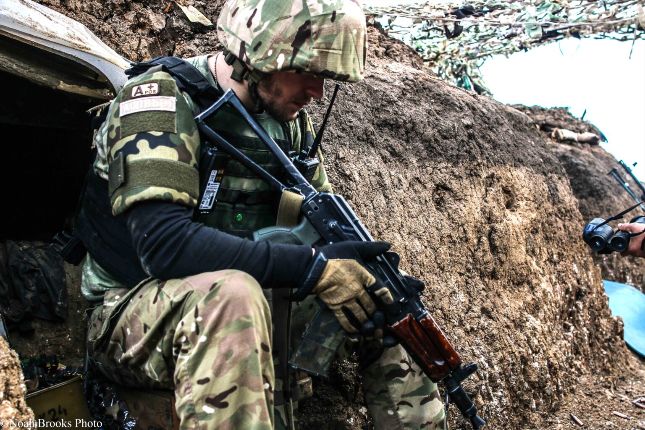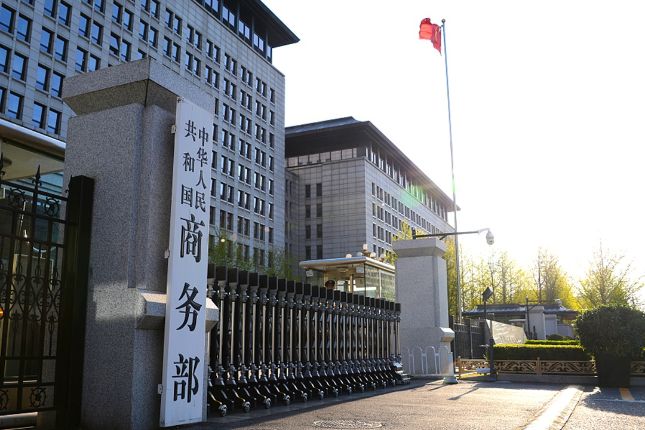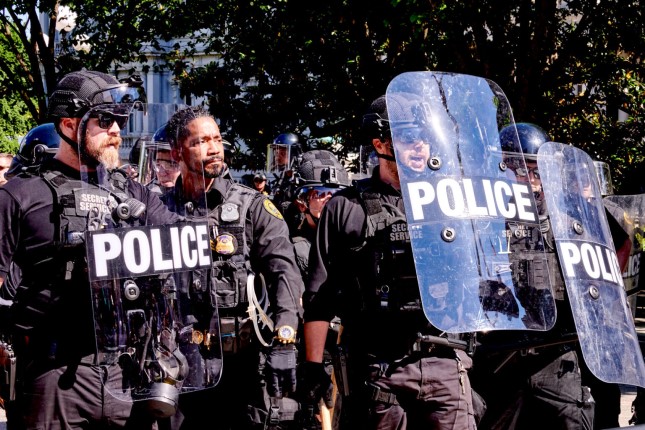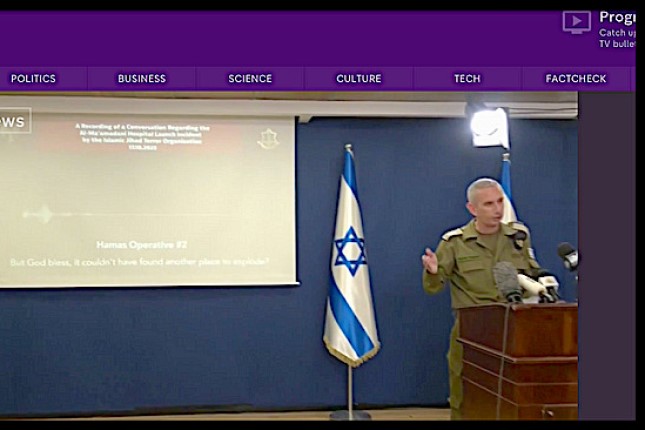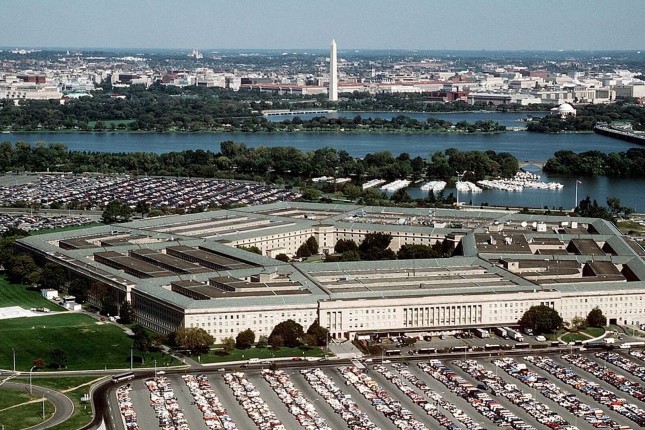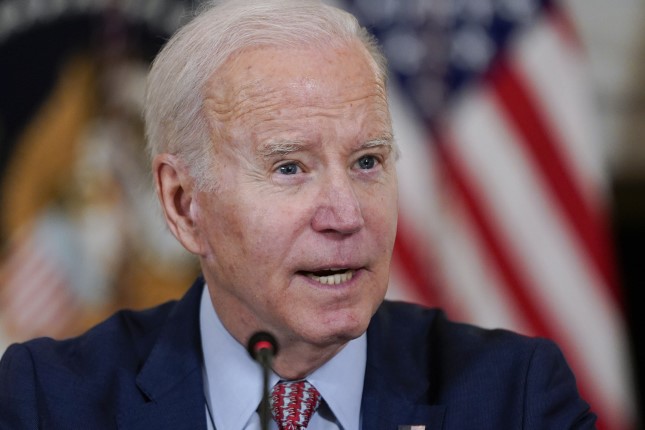It is a stark demonstration that Washington has no intention of seeking a peaceful solution in the Middle East, its war against Russia in Ukraine or its escalating confrontation with China.
On Monday, United States Forces Korea (USFK) reported that a B-52 bomber would land in South Korea at the US Osan Air Base while also conducting two flyovers of the peninsula. It marks the first time that a B-52, capable of delivering nuclear weapons, has landed in South Korea though there have been many B-52 and other bomber flyovers in the past.
The last-minute announcement that the bomber would land in South Korea came as it is scheduled to take part in a military display taking place during the Seoul International Aerospace and Defense Exhibition (Seoul ADEX) this week. The US, alongside the South Korean military, intends to feature other military aircraft and equipment in a display that is, above all, directed at China.
USFK claimed that “US support for Seoul ADEX 23 is at an all-time high in recognition of the 70th anniversary of the ironclad commitment to the ROK-US Alliance. Participation in the event allows the US to demonstrate its robust readiness by showcasing capabilities committed to protecting service members and their families, as well as defending allies and partner nations.”
While ostensibly directed at North Korea, Washington’s aim is to send a message to Beijing that the US military will not hesitate to use nuclear weapons against China. At the same time, the US is making clear that as it steps up its military presence around the Middle East and threatens war with Iran, there will be no let-up in the war drive against Beijing.
Washington is deploying a second nuclear-powered aircraft carrier to the Indo-Pacific, the US Navy confirmed last Friday. The USS Carl Vinson from the US Navy’s Third Fleet will join the USS Ronald Reagan in the region. It arrived in Busan, South Korea last Thursday for a five-day visit. The Reagan recently participated in trilateral drills alongside South Korea and Japan, which have stepped up their military cooperation in recent months.
The Third Fleet claimed the deployment was “routine” and that it would promote “freedom of navigation” and “the rule of law,”—stock phrases from US propaganda against China to justify its military build-up throughout the Indo-Pacific.
The ramping up of tensions on the Korean Peninsula comes as Washington fully backs Israel’s genocidal attack on Gaza. Seoul has likewise denounced Hamas. On October 11, right-wing President Yoon Suk-yeol met with a visiting group of US Senators in Seoul, including Senate majority leader Democrat Chuck Schumer.
Yoon’s office released a statement, declaring, “The president and the Senate delegation condemned Hamas's indiscriminate attack on Israel, and agreed that South Korea and the United States will play a constructive role to ensure regional tensions ease and stability is achieved through a swift end to the current situation.”
Seoul, however, has remained cautious about directly backing Israel, conscious of the fact that doing so could disrupt crucial energy imports from the Middle East and upset other economic deals, particularly with Saudi Arabia.
This does not mean Seoul is backing away from the US war drive. Instead, the Yoon administration and the ruling People Power Party (PPP) are using the situation to raise tensions with North Korea as part of US war preparations against China. The PPP has proposed withdrawing from a 2018 military agreement with Pyongyang designed to reduce tensions and the risk of a potential military clash. It established a no-fly buffer zone along land and sea borders.
The PPP claims, without evidence, that Pyongyang could carry out a surprise attack and that the agreement reduces Seoul’s intelligence gathering ability. As justification, the party’s leader in the national assembly, Yun Jae-ok, declared, “Hamas succeeded in its surprise attack due to Israel's surveillance and reconnaissance gaps.”
Seoul’s Unification Ministry last week also hinted that it could suspend the agreement. An anonymous ministry official speaking to the media claimed that the government might suspend the agreement if deemed “necessary for national security.” Defense Minister Sin Won-sik has also pushed for nullifying the agreement.
Seoul claims Pyongyang has violated the agreement 17 times through 2022, including 15 times last year alone. This period includes the election of Yoon, who has increased military tensions and provocations alongside the US and Japan, including by forming what amounts to a trilateral military alliance with Washington and Tokyo in August.
Even if Seoul is cautious about fully backing Israel, it has given its support to the false claim that Hamas carried out an unprovoked surprise attack. In reality, the Palestinians rose up in rebellion against the apartheid regime imposed on them by Israel. In obfuscating this reality, Seoul does the same in regards to North Korea, which has for decades been isolated by US-led sanctions and backed into a corner by mounting threats and provocations.
Photo: B-52 bomber flies over Osan Air Base in Pyeongtaek, South Korea © AP Photo / Ahn Young-joon / File.
Source: World Socialist Web Site.
